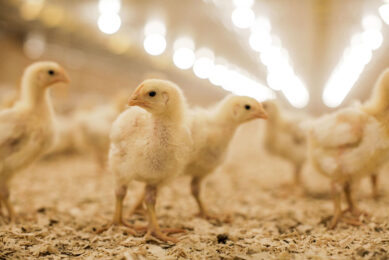DSM invests in ethanol enzyme technology
Royal DSM announced the execution of a multimillion dollar cooperative funding agreement with the US Department of Energy to underwrite a portion of research and development costs aimed at enabling “second generation” biofuels from non-food feedstocks.
In February 2008, a consortium led by DSM that includes Abengoa Bioenergy New
Technologies, Los Alamos
National Laboratory and Sandia National Laboratory was awarded US$7.4
million by the Department of Energy toward a proposed $33 million program to
conduct cost effective enzyme development for the production of cellulose-based
biofuels.
DSM has committed to funding the majority of the project costs
and to creating new highly skilled “green collar” jobs at its Belvidere, NJ
facility.
The research will help further the Department of Energy’s goal
of making cellulosic ethanol cost-competitive with gasoline by
2012.
“This initiative is a major step forward in DSM’s mission to make
Industrial Biotechnology a competitive alternative for manufacturing sustainable
and renewable fuel, material and medicine,” says Feike Sijbesma, DSM
CEO.
In the project the participants will work during the next four years
to develop cost efficient enzymes to allow for the manufacturing of commercial
quantities of second generation biofuel.
This work has already begun, and
will continue at DSM’s facility in New Jersey, and around the
world.
Proprietary enzymes that make it possible to hydrolyze cellulose
and xylose from various plant residues are available today, but a significant
volume of R&D and collaborative partnerships are still needed to make the
process commercially viable.
Second generation biofuels
Soaring
energy prices, renewed concerns about climate change, and escalating raw
material costs have created a growing interest in “Industrial Biotechnology” —
the use of living cells and their enzymes to create products from renewable
resources.
Development of conversion technologies for plant residues and
“lower value”, non-food / feed based feedstocks is currently a major focus for
DSM R&D across multiple end product applications including advanced
biofuels.
Using feedstocks such as wheat straw, corn stover and so-called
“energy crops” will enable the cost effective operation of future large scale
integrated biorefineries.











